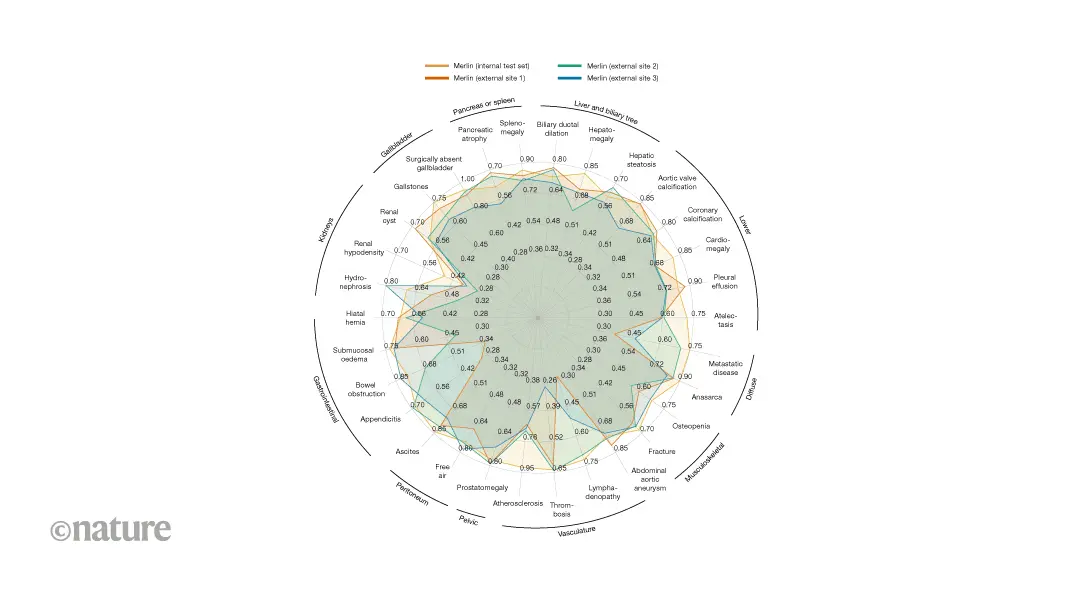Brightwave Secures $15M Series A for AI-Powered Financial Research Platform
2 Sources
2 Sources
[1]
Brightwave's AI agent helps asset managers find signal, and it's fundraising fast | TechCrunch
The finance world is constantly looking for signal: indicators of a buying or selling opportunities in the markets. Some seek out signal in pricey analyst reports, while others might find it in backdoor conversations with insiders. But sometimes, investors just need help seeing such indicators hiding in plain sight. That's what Brightwave promises its AI agent can find: signal in public data. "There's a hell of a lot of signal in the world that is not currently being transacted upon," Brightwave CEO Mike Conover (pictured above; right) told TechCrunch. "The core job of an asset manager is to know something about the world that nobody has seen in order to identify a mispriced asset, and it's not clear that is a task well-suited to the human attention span." Conover argues the task may be better suited for his company's AI system. Brightwave's AI agent can generate research reports for asset managers, using generative AI to summarize news events, stories or market reports. In an example on Brightwave's website, the AI agent summarizes a 30-page report on the state of AI from Goldman Sachs into roughly five pages, highlighting key numbers and forecasts. The startup says customers can highlight snippets of text in its AI-generated reports to see the source for any sentence, or dig deeper into specific topics. Brightwave wouldn't offer TechCrunch a demo of this feature, but it doesn't sound too dissimilar to the follow-up questions feature offered by Perplexity, which recently also introduced its own financial research tool. There's no shortage of startups working on AI agents to help with financial research, but Conover says one of Brightwave's biggest differentiators is its knowledge graph: a structured way of representing real-world entities and their relationships -- a simple knowledge graph, for example, could label Elon Musk as the CEO of Tesla in a way automated systems could understand. Conover worked on knowledge graphs during his PhD, while at LinkedIn, and he holds several patents in the field. He thinks more complex knowledge graphs could unlock better performance for today's AI systems. Brightwave this summer raised an oversubscribed $6 million seed round led by Decibel Partners, joining many other AI startups who secured seed funding this year. But unlike its peers, Brightwave has already closed another round just four months later: On Tuesday, the startup said it raised a $15 million Series A, once again led by Decibel, with participation from OMERS Ventures. Two rounds in four months is pretty quick even for an AI startup today. So, what gives? Sometimes quick fundraises can help when an AI startup burns through its funding on model training or hiring talent. However, the investor who led both rounds in Brightwave, Decibel partner Alessio Fanelli, says this was not the case. Instead, he says the startup has seen great traction, quadrupling its revenue in four months, and Decibel wanted to close the round quickly to make sure a larger fund didn't swoop in and box them out of the Series A. "We don't really want you to go out there spending too much time talking with other investors and distracting yourself from building the business," Fanelli told TechCrunch. "Maybe some other VC will tell you to just wait and raise at a higher price later on [...] We just want to give you this round today." This sentiment may represent a broader pattern of thinking amongst investors today: The competition is intense to land the hottest AI startups, so VCs must promise lots of capital and do it quickly. This could help explain why some AI startups are raising money at unprecedented rates. Conover previously co-created Databricks' open-source AI model, Dolly, and his co-founder Brandon Kotara previously led machine learning projects at Workday. The startup wouldn't disclose much about the models it uses, and also refused to share details about the public and licensed data the startup uses to generate its financial research reports. However, it seems more than likely that Brightwave's AI agent is pulling some of its information from news articles. Other AI startups, such as Perplexity, have been accused of repurposing information from journalists into products that compete with media companies. Conover does not see news organizations as a competitor, saying his startup "would never sidestep paywalls." For now, the CEO says Brightwave is excited to work with the world's best news organizations in a way that respects the rights of content producers.
[2]
Brightwave raises $15M to accelerate financial research with AI - SiliconANGLE
Brightwave raises $15M to accelerate financial research with AI Brightwave Inc., creator of an artificial intelligence-powered financial research platform for investment banks, hedge fund managers and other finance professionals, said today it has closed on a $15 million early-stage round of funding. Today's Series A round was led by Decibel Partners and saw participation from Omers Ventures, bringing the company's total amount raised to date to $21 million. Brightwave says its AI platform is all about providing accurate insights and forecasts to financial professionals, so they can make smarter investment decisions. Its AI system works by synthesizing insights from thousands of pages of financial reports and documents, including earnings reports and transcripts, news reports, Securities and Exchange Commission filings, web content, side-sell research and proprietary knowledge bases. The startup says it wants to automate the most tedious parts of the investing workflow and help customers to spot opportunities that others have missed. To do this, it has built its platform around a proprietary knowledge graph that's constructed from those data sources and hundreds of others. It crunches all of this information to try and understand the structure of global markets in more granular detail, so it can surface anything that might impact the value of investments. Decibel Partners' Alessio Fanelli said he believes Brightwave's knowledge graph will be a game-changer for financial analysts. "Markets are driven by very complex relationships, and Brightwave's knowledge graph helps you to understand the second- and third-order effects of any information, not just the surface-level implications," he said. Layered on top of Brightwave's knowledge graph is an AI-powered reasoning system that aims to make sense of everything. Its job is to connect the dots between all of the data that's fed into the knowledge graph, so it can identify the most critical drivers of asset performance. Users can interact with Brightwave's platform using a familiar chat interface. When analysts ask it a question, it will synthesize thousands or even millions of pieces of content across text, tables, images and audio to create a dynamic and interactive report. The startup says its reports are really more like "living documents" because they have the ability to adapt and update themselves dynamically as users adds their own insights, and more up-to-date data becomes available. Users can then drill down into the reports, asking additional questions, to explore the deeper implications of their findings. Co-founder and Chief Executive Mike Conover said it's extremely difficult to build an AI system that can autonomously reason about the structure of the global economy. But he believes that today's funding round proves that his company is rising to the challenge. "Brightwave users, from startups to large incumbents, regularly tell us our platform is more sophisticated than anything else they've tried in terms of both depth of insight and product functionality," Conover said. To stress that point, Conover pointed out the company's rapid growth. He said it has effectively quadrupled its revenue since closing on its $6 million seed funding round in June, though he didn't provide more specific numbers. Its client base spans everything from hedge funds and private credit investors to boutique consultancies and some of the world's largest asset managers. Looking ahead, Brightwave will use the money from today's round to invest in engineering talent, accelerate its research, build up its computing infrastructure and forge strategic data partnerships to enhance its underlying knowledge graph.
Share
Share
Copy Link
Brightwave, an AI startup, has raised $15 million in Series A funding to enhance its AI-powered financial research platform, which uses a knowledge graph and generative AI to provide insights for asset managers and financial professionals.

Brightwave Secures $15M in Series A Funding
Brightwave, an artificial intelligence startup focused on financial research, has successfully closed a $15 million Series A funding round. The investment was led by Decibel Partners, with participation from OMERS Ventures, bringing the company's total funding to $21 million
1
2
. This comes just four months after their $6 million seed round, highlighting the rapid growth and investor interest in the company.AI-Powered Financial Research Platform
Brightwave's core offering is an AI agent designed to help asset managers and financial professionals find valuable signals in public data. The platform synthesizes insights from a vast array of sources, including financial reports, news articles, SEC filings, and proprietary knowledge bases
2
.Mike Conover, Brightwave's CEO, emphasizes the platform's ability to identify mispriced assets by processing information beyond human capacity. "There's a hell of a lot of signal in the world that is not currently being transacted upon," Conover stated
1
.Knowledge Graph and AI Reasoning
At the heart of Brightwave's technology is a proprietary knowledge graph, which structures real-world entities and their relationships. This graph is crucial for understanding complex market dynamics and identifying second- and third-order effects of information
2
.Layered on top of this knowledge graph is an AI-powered reasoning system that connects data points to identify critical drivers of asset performance. Users can interact with the platform through a chat interface, generating dynamic and interactive reports that synthesize information from various sources
2
.Competitive Edge and Growth
While there are other startups working on AI agents for financial research, Brightwave claims its knowledge graph technology sets it apart. The company's rapid growth is evident in its fundraising success and reported quadrupling of revenue in just four months
1
2
.Alessio Fanelli from Decibel Partners expressed confidence in Brightwave's potential: "Markets are driven by very complex relationships, and Brightwave's knowledge graph helps you to understand the second- and third-order effects of any information, not just the surface-level implications"
2
.Related Stories
Product Features and Use Cases
Brightwave's AI agent can generate research reports that summarize extensive documents into concise, actionable insights. For example, it can condense a 30-page report on AI from Goldman Sachs into roughly five pages, highlighting key numbers and forecasts
1
.The platform allows users to:
- Highlight text snippets to see sources
- Dig deeper into specific topics
- Ask follow-up questions for more detailed analysis
- Adapt and update reports dynamically as new data becomes available
1
2
Future Plans and Industry Impact
With the new funding, Brightwave plans to invest in engineering talent, accelerate research, build up computing infrastructure, and forge strategic data partnerships to enhance its knowledge graph
2
. The company serves a diverse client base, including hedge funds, private credit investors, boutique consultancies, and large asset managers.As AI continues to transform the financial sector, Brightwave's rapid growth and innovative approach to financial research signal a potential shift in how investment professionals access and analyze market information. However, questions remain about the ethical use of public data and potential impacts on traditional financial analysis roles
1
2
.References
Summarized by
Navi
[1]
Related Stories
BrightAI Emerges from Stealth with $15M Seed Funding for AI-Powered Infrastructure Optimization
20 Nov 2024•Technology

AI Funding Surge: Big Tech and VCs Lead $118 Billion Investment in 2025
21 Aug 2025•Business and Economy

Boosted.ai Secures $15 Million to Enhance AI-Powered Investment Management Platform
27 Nov 2024•Business and Economy

Recent Highlights
1
Trump bans Anthropic from government as AI companies clash with Pentagon over weapons and surveillance
Policy and Regulation

2
Nvidia pulls back from OpenAI investment as Jensen Huang cites IPO plans and complex dynamics
Technology

3
Samsung unveils Galaxy S26 lineup with Privacy Display tech and expanded AI capabilities
Technology





